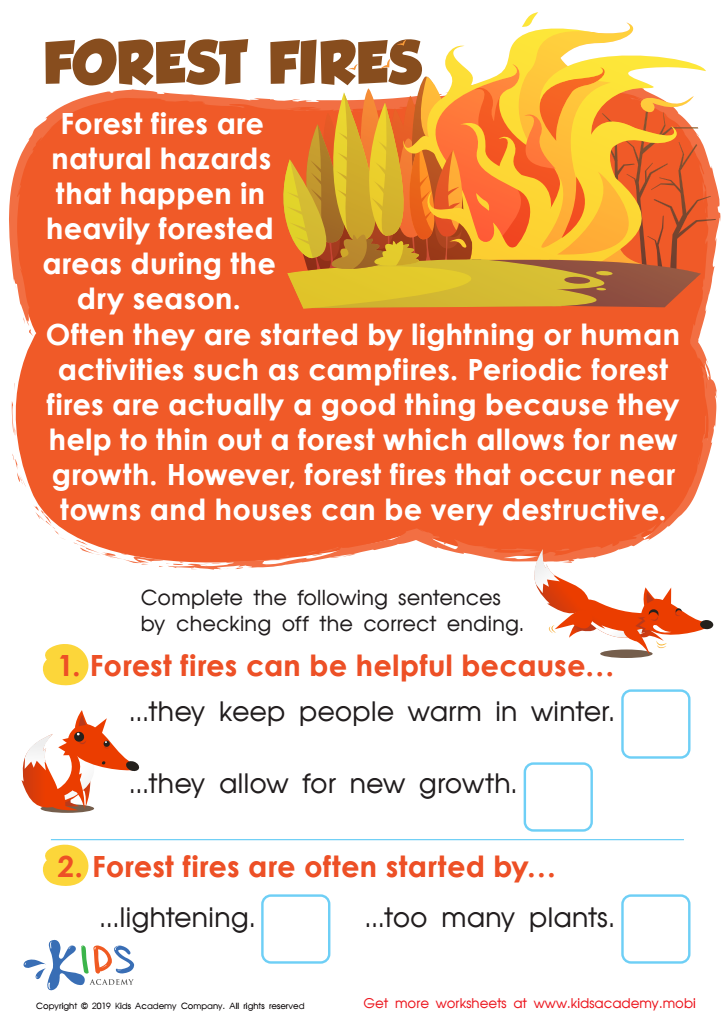Understanding ecosystems Normal Our Planet and Environment Worksheets for Ages 6-8
4 filtered results
-
From - To
Explore the wonders of nature with our "Understanding Ecosystems" worksheets designed for children aged 6-8. These engaging activities from Kids Academy offer young learners a fun and educational way to understand how ecosystems function. With vibrant illustrations and age-appropriate content, kids will discover the interdependence of plants, animals, and their environment. Perfect for both classroom and home use, these worksheets help foster a love for science while developing key learning skills. Unlock the secrets of our planet and its delicate balance today with our expertly crafted educational resources.


Ecosystems: Assessment 1 Worksheet


Forest Fires Worksheet


Ecosystems: Assessment 2 Worksheet


Animals and Plants: Assessment 1 Worksheet
Understanding ecosystems is vital for young children because these early lessons foster a lifelong appreciation and respect for nature. As parents and teachers, emphasizing the importance of our planet’s environment equips kids with the basic knowledge to recognize their role in sustaining it. Knowledge of ecosystems helps kids comprehend how different plants, animals, and weather systems interact and depend on each other to thrive.
For children aged 6-8, nurturing this awareness makes learning about science fun and engaging. Exploring topics like food chains, habitats, and the water cycle demonstrates that our actions can affect these natural processes. When children learn that saving energy, reducing waste, and protecting wildlife can help maintain balanced ecosystems, they become inspired to practice sustainable habits.
Moreover, introducing children to these concepts early on builds their critical thinking and problem-solving skills. They learn to ask questions, make observations, and seek solutions – competencies that surpass the environmental topic and serve them in many areas of life. As advocates for their education and growth, parents and teachers play a pivotal role in guiding our future generation to be conscientious stewards of our planet, ensuring its health and vitality for years to come.
Thus, fostering an understanding of ecosystems cultivates responsible, informed individuals who cherish and act to protect our planet.
 Assign to My Students
Assign to My Students
















